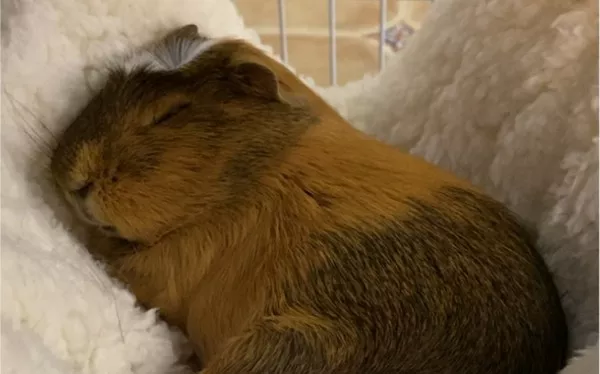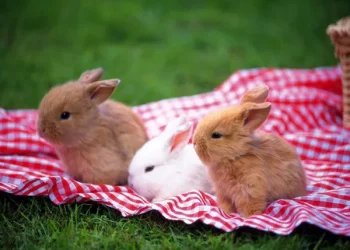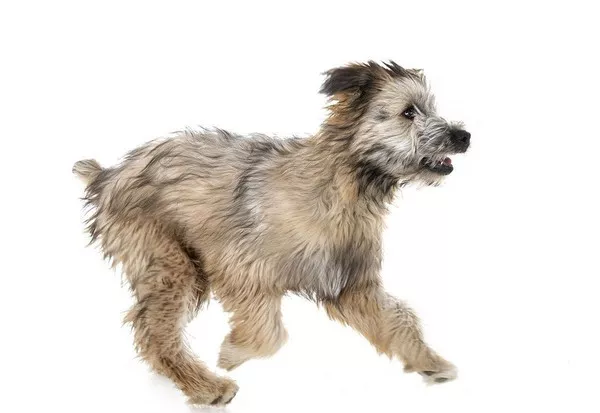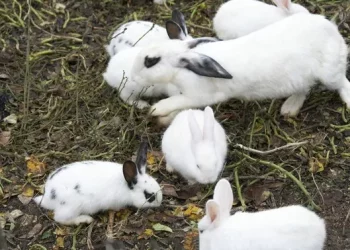When it comes to caring for pets, especially small animals like guinea pigs and rabbits, it’s important to provide them with a balanced and healthy diet that meets their unique nutritional needs. However, many pet owners wonder whether they can feed their guinea pigs rabbit food. The short answer is no. Guinea pigs and rabbits have distinct dietary requirements, and feeding guinea pigs rabbit food can lead to nutritional deficiencies or health problems.
In this article, we’ll explore the reasons why guinea pigs and rabbits need different foods, the specific dietary needs of guinea pigs, and what you should feed your guinea pig to keep it healthy and happy.
Understanding the Differences Between Guinea Pigs and Rabbits
Both guinea pigs and rabbits are herbivores, meaning that their diet consists primarily of plant material such as hay, vegetables, and fruits. However, despite their similar diet, guinea pigs and rabbits are very different in terms of their nutritional needs, digestive systems, and overall health requirements.
Digestive System Differences
Guinea pigs (Cavia porcellus) and rabbits (Oryctolagus cuniculus) both have a digestive system that requires high-fiber food, but the way they process and digest food is different.
Guinea pigs: They are monogastric herbivores, meaning they have a single-chambered stomach. This stomach cannot break down certain nutrients as efficiently as the stomach of a ruminant (like a cow). Instead, guinea pigs rely heavily on their cecum (a part of the digestive system) to break down fiber and extract essential nutrients. Their digestive system also needs vitamin C, which they cannot produce themselves, so it is crucial for them to get this vitamin from their diet.
Rabbits: Rabbits are also monogastric herbivores, but they have a unique digestive system designed to handle a higher amount of cellulose and other complex carbohydrates found in plants. Rabbits have a larger cecum than guinea pigs, and they produce something called cecotropes—nutrient-rich feces that they eat to absorb more nutrients from their food. This process is essential for their digestion and overall health.
While both animals require a high-fiber diet to maintain digestive health, guinea pigs and rabbits need slightly different types of fiber and other nutrients.
Vitamin C Needs
One of the biggest differences in the dietary needs of guinea pigs and rabbits is their requirement for vitamin C. Guinea pigs cannot produce vitamin C on their own, meaning they must get it from their diet. A deficiency in vitamin C can lead to scurvy, a disease that causes joint pain, lethargy, and even death in severe cases.
Rabbits, on the other hand, can produce their own vitamin C in their bodies and do not require it from their food. While rabbits do need some vitamin C in their diet, they are much less dependent on it than guinea pigs.
The Risks of Feeding Guinea Pigs Rabbit Food
Now that we understand the basic differences between guinea pigs and rabbits, let’s dive into why feeding your guinea pig rabbit food can be harmful.
1. Nutritional Imbalance
Rabbit food, which often comes in the form of pellets, is formulated to meet the nutritional needs of rabbits. These pellets typically contain higher levels of protein, fat, and calcium than guinea pig food. While rabbits can tolerate these ingredients, guinea pigs cannot.
Protein: Rabbit pellets are typically higher in protein, which can lead to kidney problems and other health issues in guinea pigs if consumed in excess. Guinea pigs require a more moderate level of protein, and excessive protein can lead to kidney stress and urinary issues.
Calcium: Rabbit food may also contain more calcium than guinea pigs need. While calcium is important for bone health, too much calcium can cause urinary problems in guinea pigs, such as bladder stones. Guinea pigs are more prone to developing calcium buildup in their urinary system, and a diet too rich in calcium can exacerbate this problem.
Vitamin C: Rabbit food does not typically contain added vitamin C, as rabbits produce it on their own. This means that guinea pigs fed rabbit food will not get the vitamin C they need, which can lead to a deficiency and result in scurvy over time.
2. Inappropriate Fiber Levels
While both guinea pigs and rabbits require a high-fiber diet, the fiber levels in rabbit food may not be optimal for guinea pigs. Guinea pigs need high amounts of long-strand fiber, which is typically found in hay like timothy hay, to promote good digestion and prevent obesity.
Rabbit food often contains lower-quality fiber that may not be as effective in promoting healthy digestion for guinea pigs. Moreover, the fiber in rabbit pellets may be more processed, which could hinder the healthy movement of food through a guinea pig’s digestive system.
3. Lack of Fresh Vegetables
Rabbit food tends to focus more on pellets and dried ingredients, with less emphasis on fresh vegetables. Fresh, leafy greens are essential to guinea pigs’ diets, as they provide hydration, fiber, and key vitamins such as vitamin C. Without fresh vegetables, guinea pigs may not get the full range of nutrients they need.
4. High Sugar Content in Some Rabbit Foods
Some commercially available rabbit foods include dried fruits or sugary additives to enhance flavor. While rabbits can generally handle these ingredients in moderation, guinea pigs should not be fed sugary foods. High sugar intake can lead to obesity, dental problems, and digestive issues in guinea pigs.
Proper Diet for Guinea Pigs
Now that we understand why feeding guinea pigs rabbit food is not recommended, let’s explore what a proper diet for guinea pigs should include.
1. High-Quality Hay
Hay should be the cornerstone of your guinea pig’s diet. High-quality hay, such as timothy hay, is rich in fiber, which is essential for your guinea pig’s digestion and helps keep their teeth healthy. It is also low in calcium, which is important for preventing urinary issues.
Timothy hay is the most commonly recommended hay for guinea pigs, as it offers the right balance of fiber and nutrients.
Meadow hay and oat hay can also be good choices, as they provide variety and encourage natural grazing behavior.
Fresh hay should always be available to your guinea pig, and they should be encouraged to eat large amounts of it daily.
2. Fresh Vegetables
Guinea pigs require fresh vegetables every day to ensure they are getting enough vitamins and minerals. The vegetables should be rich in vitamin C, as guinea pigs cannot produce it on their own. Some good options include:
Leafy greens: Romaine lettuce, parsley, cilantro, and kale are great choices. Avoid iceberg lettuce, as it has little nutritional value.
Bell peppers: These are an excellent source of vitamin C.
Carrots: Guinea pigs can enjoy small amounts of carrots, but they should not be fed too many due to the sugar content.
Cucumber: This vegetable provides hydration and is low in calories.
Always wash vegetables thoroughly before feeding them to your guinea pig, and avoid feeding them any processed or pre-packaged salads.
3. Vitamin C Supplements
Since guinea pigs cannot produce vitamin C, you may need to supplement their diet with vitamin C. Some guinea pig food brands offer pellets with added vitamin C, but it’s important to remember that vitamin C breaks down over time. It’s best to feed your guinea pig fresh vegetables like bell peppers, which are high in vitamin C. Alternatively, you can give your guinea pig a vitamin C supplement in the form of drops or chewable tablets if advised by your vet.
4. Fresh Water
Guinea pigs need fresh, clean water at all times. Ensure that they have access to water at all times, and consider using a water bottle rather than a bowl to keep the water clean. Change the water daily to avoid contamination.
5. Limited Fruits
While guinea pigs can eat fruit in moderation, fruits should not be a primary food source. High sugar content can lead to obesity and other health issues. Good fruit choices include:
- Strawberries (a good source of vitamin C)
- Apple slices (without seeds, as they contain cyanide)
- Blueberries
Always remember that fruits should be given in small portions, no more than once or twice a week.
6. Avoiding Harmful Foods
There are certain foods that are harmful to guinea pigs and should be avoided at all costs. These include:
Iceberg lettuce: Contains very few nutrients and can cause digestive issues.
Onions and garlic: Toxic to guinea pigs and can cause severe health issues.
Potatoes: High in starch and can upset your guinea pig’s digestive system.
Avocados: Contain a toxin that can be fatal to guinea pigs.
Conclusion
Feeding guinea pigs rabbit food is not recommended, as it can lead to a range of health issues due to the differences in their dietary needs. Guinea pigs require a specific balance of fiber, vitamin C, and nutrients that rabbit food cannot provide. To ensure your guinea pig remains healthy, provide them with a diet primarily consisting of high-quality hay, fresh vegetables, and fruits in moderation. By understanding their unique nutritional needs and avoiding common mistakes, you can help your guinea pig live a long and healthy life.
Remember, always consult with a veterinarian to ensure that you are meeting your guinea pig’s specific dietary needs, and never hesitate to seek expert advice when it comes to the health and well-being of your pet.
Related Topics:
























